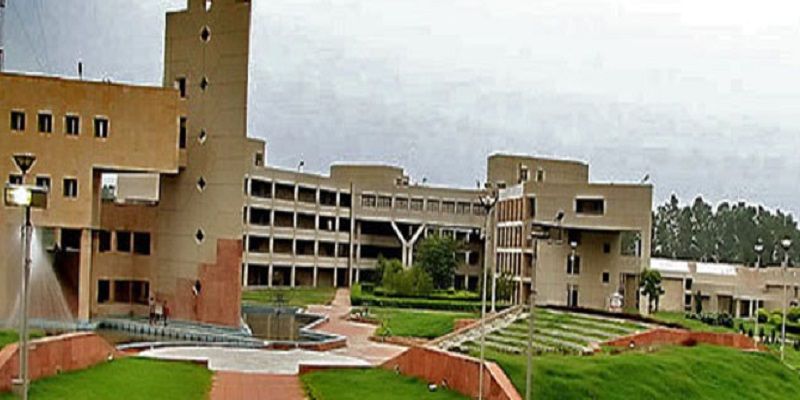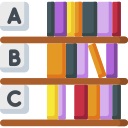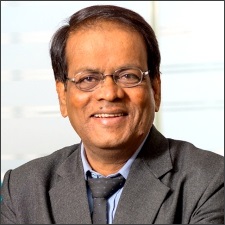
DTU Delhi Technological University
|
Quick View of Delhi Technology University |
|
|
Established In |
1941 |
|
University Type |
State |
|
Location |
Delhi |
|
Accepted Exams |
Jee Main, GATE, CAT, UCEED, CEED, UGC, NET, CSIR NET |
|
Total MoUs |
30+ |
|
Salary Package |
Highest International Package- 1.02 Crore |
|
Highest Domestic Package- 39 LPA |
|
|
Facilities |
Library, Cafeteria, Hostel, Sports, Labs |
Delhi Technological University (DTU), formerly known as Delhi College of Engineering, was founded in 1941. The University has an "A" grade from the NAAC and is also approved by the University Grant Commission (UGC). DTU was ranked second in Engineering by Times 2021 and seventh in Government Engineering by India Today 2021 in the most recent rankings. DTU was also ranked 36 for Engineering by NIRF in 2020. DTU is one of India's oldest engineering colleges, located in Rohini, Delhi. DTU currently offers over 80 courses through its 17 departments. University School of Management and Entrepreneurship (USME), also known as the DTU East Delhi Campus, was recently established as one of these departments. DTU also established the Delhi School of Management (DSM) as a department to provide management courses.
All UG, PG, and doctoral programmes in Engineering, Design, Science, and Management, among others, are available through DTU's main campus, DSM, and USME. DTU admission to all UG, PG and doctoral programmes is entirely competitive. Students who want to be admitted must take the required university/national-level exam and wait for the merit list, which is based on the exam score. Between 2012 and 2019, DTU partnered with numerous foreign universities and signed over 30 Memorandums of Understanding (MoUs) in order to provide global exposure to its students. Among the well-known universities with which it has collaborated over the years are Universite De Sherbrooke, University of Calgary, and Ryerson University.
Courses
B.Tech in Mechanical Engineering with specialization in Automotive Engineering
Total Fee: INR 844000
Highlights
- Among engineering colleges in India, Delhi Technological University was ranked 5th in the 'i3RC Times Engineering Survey' in 2018, 13th in the 'Outlook India' in 2018, and 10th in the 'The Week' in 2017.
- The National Institutional Ranking Framework (NIRF) ranked DTU 41st in the engineering category in 2018 and 71st overall.
- In 2017, DTU students received the highest salary package of 39.2 LPA in (domestic) and 52.22 LPA in (international).
- DTU's Office of International Affairs facilitates international student exchange programmes, international events, partnerships, and programmes.
- DTU has worked on projects for the PWD, Delhi, and DSIIDC, and has received over 50 lakhs in funding.
- DTU has signed Memorandums of Understanding (MOUs) with companies and international universities such as Nanyung Technological University in Singapore, Samsung, Latrobe University in Australia, and many others.
DTU Ranking
DTU has consistently achieved top engineering rankings over the years. In addition to being ranked in the top 801-1000 institutions in the Times World Ranking of Engineering Institutions (according to the official brochure), Delhi Technological University has received the following popular rankings:
- The QS Asia University Rankings 2021 place it between 551-600.
- THE World University Rankings 2022 place it between 601 and 800.
- THE World University Rankings 2021 place it between 801 and 1000.
- THE Asia University Rankings 2021 place them between 201-250.
- In the NIRF Engineering Rankings 2021, he is ranked 36th.
- In the NIRF Overall Rankings 2021, it is ranked 54th.
- Outlook India's Top Govt. Engineering Colleges 2021 is ranked 16th.
- Ranked seventh among India Today's Top Govt. Engineering Colleges for 2021.
DTU Admission 2021
The University is accepting applications for a variety of courses in the fields of Management, Engineering, and Design. Candidates must register for the desired courses. Applicants can simply follow the steps below to register themselves; the registration mode is offline:
Step 1: Go to the university's campus and pick up an application form from the appropriate department.
Step 2: Complete the form by providing accurate personal and educational information and attaching the required credentials.
Step 3: Pay the application form's required fee and submit it or mail it to the university's official address.
Note: In order to be considered for admission to DTU, candidates must first register for the relevant entrance exam.
DTU Courses & Eligibility 2021
|
Course |
Eligibility |
|
B.Tech |
Class 12 with 60% aggregate + JEE Main |
|
BBA |
10+2 |
|
B.Des |
Pass in Class 12 OR 3-year Diploma |
|
B.Tech (Lateral) |
10+3 + JEE Main |
|
MBA |
Graduation + CAT |
|
M.Tech |
Pass in Graduation + GATE |
|
B.A (Hons) |
10+2 |
|
Ph.D |
PG degree in relevant domain with 55%-75% aggregate |
DTU Cutoff
Candidates who meet their eligibility requirements with the Cutoff will only be considered for admission to any course. The Delhi Technological University Cutoff represents the minimum percentage required for admission to a specific course. The University issues subsequent cut-off lists until all seats in the affiliated colleges are filled. DTU B.Tech Cutoff 2018 consisted of six rounds, whereas the cutoff for MBA students via CAT was closed after two rounds. DTU Cutoff is influenced by the number of applicants each year as well as the highest percentage of students who pass the relevant entrance exam.
Note: The university relaxes the cut-off marks for SC, ST, OBC, ECA, PWD, and female candidates in all reserved categories.
DTU Scholarship
The institute itself offers a wide range of scholarships and financial assistance to needy and meritorious DTU Delhi students based on their performance in entrance exams or previous academic qualifications, sports activities, caste categories, etc., and other factors. Some of the most popular scholarship programmes offered by DTU Delhi are listed below.
- Pandit Man Mohan Nath Dhar Scholarship for financially disadvantaged undergraduate students
- Scholarships are awarded by Inder Kohli and Anand Kohli to students who pass the Senior Secondary School Examination with first division marks.
- Madan Mohan Krishna Kaul Scholarships are available to students who enroll in B.E Electronics/Electricals/Mechanical and Civil first-year courses.
- Smt. Savitri Agnihotri Scholarships are available to students enrolled in any of the Faculty of Technology's first-year programmes.
DTU Placement
Delhi Technological University is one of the country's top engineering schools, with an unrivaled placement record. Outlook India ranks it first in a placement category. The table below shows the placement packages offered to DTU students by several international conglomerates as well as Indian corporations:
|
Placement Package |
Amount |
|
International Package |
52.22 LPA |
|
Domestic Package |
39.2 LPA |
Faculty (0)
';Dr. R. C. Sharma
Professor, Department Of Applied Chemistry
Qualification - Ph.D
Subject Experties - Electro Solution Chemistry,Molten Electrolytes
Dr. S. G. Warkar
Professor, Department Of Applied Chemistry
Qualification - M.Sc, Ph.D
Subject Experties - Inorganic Chemistry And Polymers
Dr. Jai Gopal Sharma
Head & Professor, Department Of Biotechnology
Qualification - Ph.D
Subject Experties - Bioremediation, Water Quality Management, Larviculture, Radiation Biology
Dr. Yasha Hasija
Assistant Professor, Department Of Biotechnology
Qualification - Ph.D
Subject Experties - Biotechnology, Bioinformatics
Prof. S. K. Singh
Professor, Department Of Civil Engineering
Qualification - BE, M. Tech, Ph. D
Subject Experties - Solid Waste Processing, Wastewater Treatment Designs, Water Treatment Designs, Water Quality Modeling, Solar Detoxification, EIA & Auditing
Dr. Ashutosh Trivedi
Professor, Department Of Civil Engineering
Qualification - B.Sc, M.Tech, Ph.D
Subject Experties - Geotechnical Engineering
Dr. Daya Gupta
Professor, Department Of Computer Science & Engineering
Qualification - M.Sc, Post M.Sc, Ph.D
Subject Experties - Software Engineering , Artificial Intelligence, Data Mining And Security Engineering
Dr. Rajni Jindal
Head & Associate Professor, Department Of Computer Science & Engineering
Qualification - MCA, ME, Ph.D
Subject Experties - Database Systems, Data Mining And Operating Systems
Dr. Rajeshwari Pandey
Professor, Department Of Electronics & Communication Engineering
Qualification - B.Tech , ME , Ph.D
Subject Experties - Linear Integrated Circuits,Fiber Optical Communication
Dr. Neeta Pandey
Professor, Department Of Electronics & Communication Engineering
Qualification - Ph.D
Subject Experties - Analog And Digital VLSI Design, Current Mode ADC Design
Dr. Narendra Kumar
Professor, Department Of Electrical Engineering
Qualification - B.Sc, M.Sc, PhD
Subject Experties - Power System & Drives
Dr. N. K. Jain
Professor, Department Of Electrical Engineering
Qualification - B.Sc, M.Sc, PhD
Subject Experties - Power Systems
Dr. Dheeraj Joshi
Professor, Department Of Electrical Engineering
Qualification - BE, ME, Ph.D
Subject Experties - Power Electronics, Electric Drives, Renewable Energy Systems
Dr. Anil Kumar Haritash
Assistant Professor, Department Of Environmental Engineering
Qualification - M.Sc, M. Tech, Ph.D
Subject Experties - Environmental Microbiology, Bioremediation
Mrs. Geeta Singh
Assistant Professor, Department Of Environmental Engineering
Qualification - B. Tech, M. Tech
Subject Experties - Environmental Hydraulics, Ground Water Pollution
Facilities

Ransomware by ./M789

Cafeteria

Hostel

Sports Complex

Gym

Medical Facilities

Wi-Fi Campus

Auditorium

Labs
Other Details
- Awards: The QS Asia University Rankings 2021 place it between 551-600. THE World University Rankings 2022 place it between 601 and 800. THE World University Rankings 2021 place it between 801 and 1000. THE Asia University Rankings 2021 place them between 201-250. In the NIRF Engineering Rankings 2021, he is ranked 36th.
- Collaboration(s): DTU has recently partnered with a number of foreign universities to provide exposure to its students, signing more than 30 Memorandums of Understanding (MoUs) between 2012 and 2019. Among these universities are Universite De Sherbrooke, University of Calgary, Ryerson University, CERN, National University of Singapore, UBC, Universite Laval, IPAM, and Ku Leuven. It has also formed research alliances with leading universities in Korea, Singapore, France, Florida, the United States, Africa, and
Contact
Delhi Technological University, Shahbad Daulatpur, Main Bawana Road, Delhi-110042. India
-
PGDM-Post Graduate Diploma in Management
Total Fee: INR 745000
-
B.Com Bachelor of Commerce
Total Fee: INR 240000
-
PGDM-Post Graduate Diploma in Management
Total Fee: INR 745000
-
B.Com Bachelor of Commerce
Total Fee: INR 240000
-
PGDM-Post Graduate Diploma in Management
Total Fee: INR 745000
-
B.Com Bachelor of Commerce
Total Fee: INR 240000
-
PGDM-Post Graduate Diploma in Management
Total Fee: INR 745000
-
B.Com Bachelor of Commerce
Total Fee: INR 240000
Highlights
- International Institute of Business Studies (IIBS) is an AICTE Approved college which is recognized by Ministry of HRD, Government of Indias
- IIBS rated India’s No.1 emerging B-School in placement by Samaja Parivarthana
- Faculty of IIBS consists of experienced corporate faculty with 65% Ph.D. holders
- Ranked 2nd among 'Top 10 Southern B Schools' by Silicon India, 2017
- Ranked 3rd in Placement among the Best B-School in India 2017 by Silicon India
Modern Facilities
- Smart Classroom: IIBS provides fully equipped classroom with air-conditioned, projectors, remote controlled LCD and high speed connected computers and cordless microphones
- Library: It is fully equipped by highly information recourses like latest periodicals, reference texts, management text books, national and international journals and DVDs and well organized
- Digital Library: Students of IIBS can be access the digital library through any computers by using their ID and password
- Auditorium: IIBS auditorium is fully furnished and laced with all modern devices to more impactful view
- Hostel: IIBS provides hostel accommodation for boys and girls with mesh facility
Conducting IIMs have been changed the pattern of the CAT exams several times over the years. It is extremely beneficial for the aspirants to know the CAT paper pattern as it helps in preparation and the aspirants can prepare according to the pattern and weightage of the topics.
Overview of the Exam Pattern of CAT 2020
| Mode of the Exam | Online Only |
|---|---|
| Total number of Questions | 100 |
| Total Marks | 300 |
| Duration of the Examination | 3 hours (180 minutes) |
| Sectional Division of the Paper | 3 sections |
| Types of the Questions | Both MCQs and Non MCQs |
| Marking Scheme |
For Correct Answers → +3 marks For Incorrect Answers → -1 mark For Unattempted Questions → No marks |
| Name of the Sections |
1. Verbal Ability & Reading Comprehension 2. Logical Reasoning & Data Interpretation 3. Quantitative Aptitude |
This Exam is conducted once in a year usually in the month of November on online mode and it is expected that this year this exam will held in the last week of November. The question paper contains 100 questions to be solved in 3 hours. 3 marks are assigned for correct answer and 1 mark is deducted for wrong answer in CAT Exam. English is the only medium of answering the questions. Each question consists of four choices from which only one is correct, candidates have to select the right answer from the given options.
CAT question paper consists of three sections divided as
- 1. Verbal and Reading Comprehension (VARC)
- 2. Data Interpretation & Logical Reasoning (DI & LR)
- 3. Quantitative Ability (QA)
Overview of the Exam Pattern of CAT 2020
| Section’s Name | Number of Questions | Duration (in mins) |
|---|---|---|
| Verbal and Reading Comprehension (VARC) | 34 | 60 |
| Data Interpretation & Logical Reasoning (DI & LR) |
VA → 10 Questions RC → 24 Questions |
60 |
| Quantitative Ability (QA) |
DI → 16 Questions LR → 16 Questions |
60 |
| Total | 100 | 180 minutes (3hours) |
Verbal Ability and Reading Comprehension Section
This section is a combination of two sub-sections namely Verbal Ability (VA) and Reading Comprehension (RC). The main focus of this section is on the English language skills of the candidates and how they understand and elucidate the paragraphs and Passages. This section consists of 34 questions, 10 questions of Verbal Ability and 24 questions of Reading Comprehension. Verbal ability sub-section consists of questions related to Para-jumbles, Summary based questions, Sentence Correction and Completion. The other sub-section, Reading Comprehension is based on the questions related to Vocabulary, title etc.
Logical Reasoning & Data Interpretation Section
This section is also divided into two sub-sections, one is Logical Reasoning (LR) and other is Data Interpretation (DI). A total of 32 questions are asked in this section, 16 questions from both the sub-section. LR section contains solvable questions generally from the topics like inequalities, symbol operations, direction sense test etc. On the other hand DI section is a little difficult and time-consuming section as it consists of several confusing data case lets questions. This section contains tricky question and a little mistake in understanding the case lets can lead the candidates to attempt all the questions from a particular set incorrectly.
Quantitative Aptitude Section
This section is a standalone section which comprises only numerical questions from different topics of Math. A total of 34 questions are asked in this section. This section contains questions based on Basic Arithmetic, Number System, Geometry, Algebra, Modern Math etc. The questions in this section ranges from easy to moderately high and can be answered easily with proper practice of the syllabus of Quantitative Aptitude.

|
Prof. Prabhakar H
B.Sc., PG in HRD, PG in Training & Development |

|
Prof. Prabhakar H
B.Sc., PG in HRD, PG in Training & Development |

|
Prof. Prabhakar H
B.Sc., PG in HRD, PG in Training & Development |

|
Prof. Prabhakar H
B.Sc., PG in HRD, PG in Training & Development |

|
Prof. Prabhakar H
B.Sc., PG in HRD, PG in Training & Development |

|
Prof. Prabhakar H
B.Sc., PG in HRD, PG in Training & Development |
Facilities













CAT 2020 will be conducted in the following cities:
| Port Blair | Kurnool | Nellore | Tirupati |
| Vijaywada | Visakhapatnam | Chittoor | Itanagar |
| Dibrugarh | Guwahati | Silchara | Aurangabad |
| Gaya | Muzaffarpur | Patna | Chandigarh |
| lorem | lorem | lorem | lorem |
Contact Us
#75, Muthugadahalli, Bangalore North Jala Hobli, near International Airport airport(New Airport), Bangalore ( Karnataka)
admission@iibsonline.com









